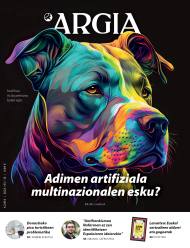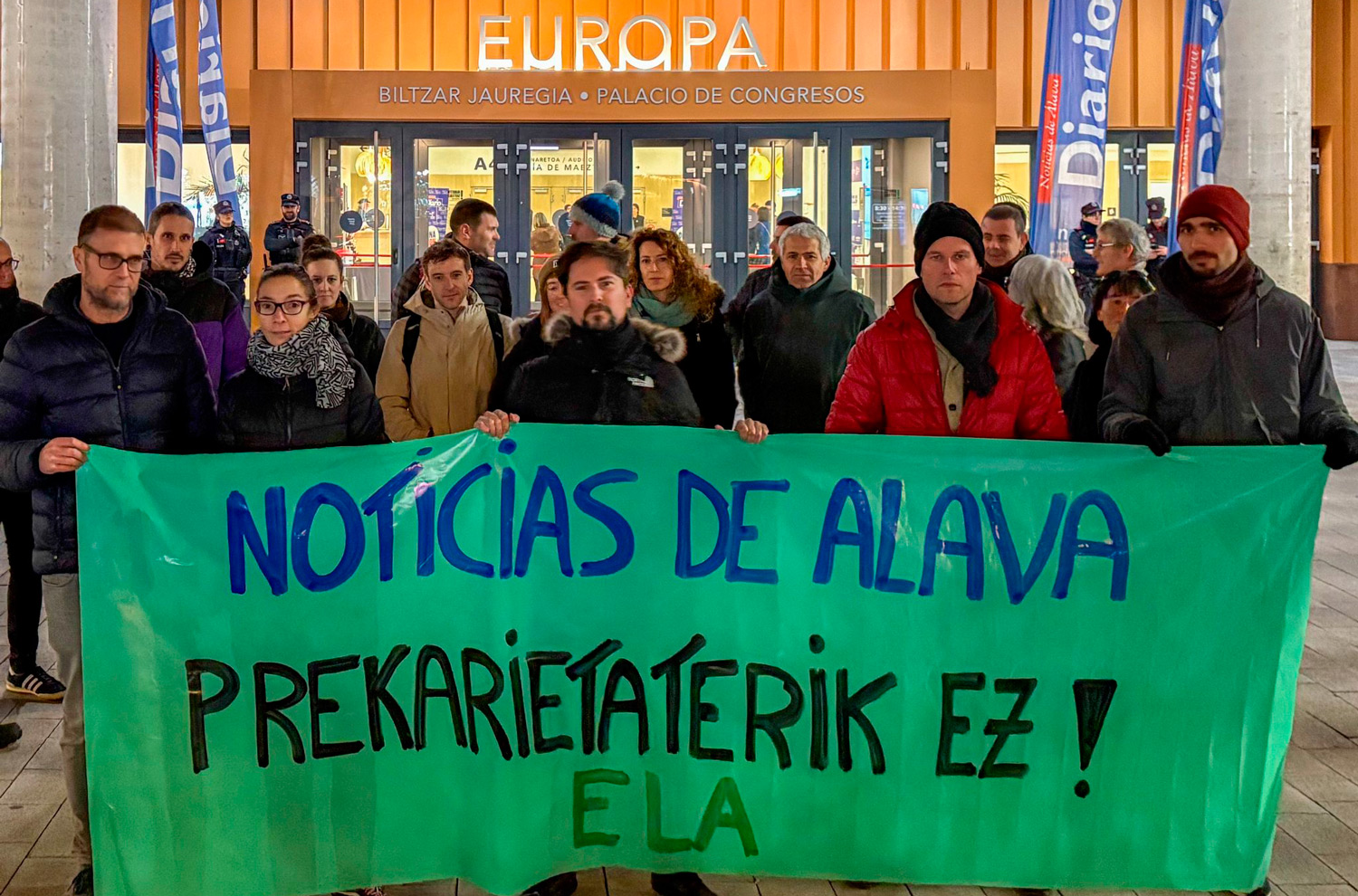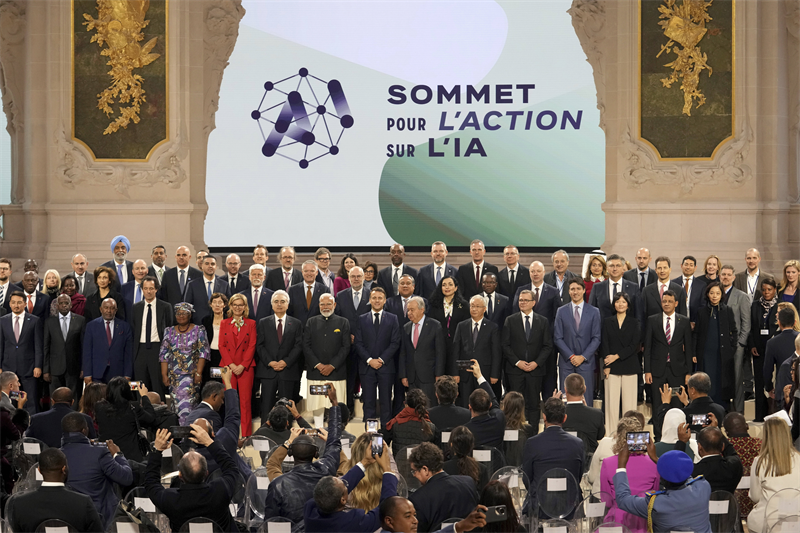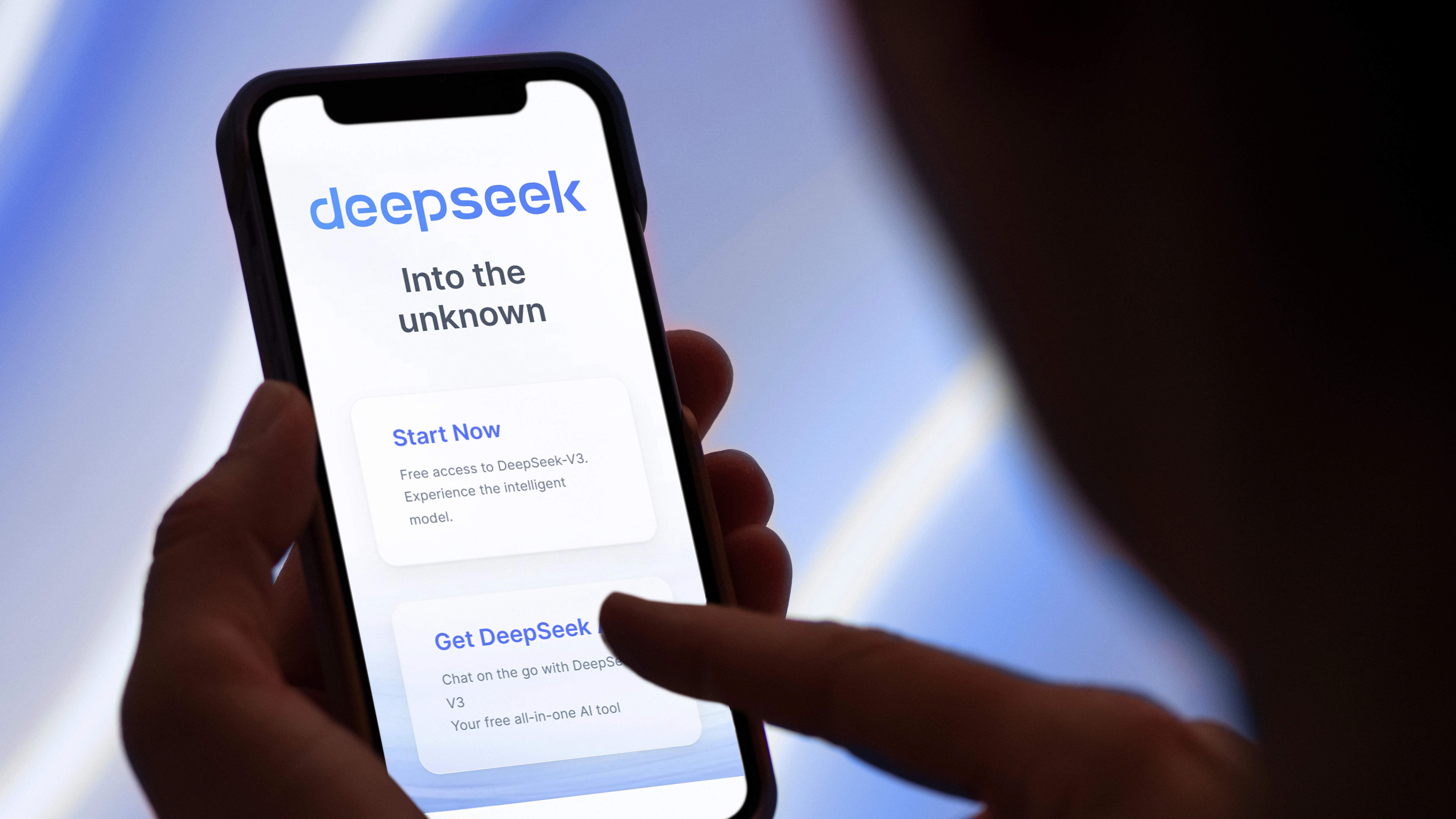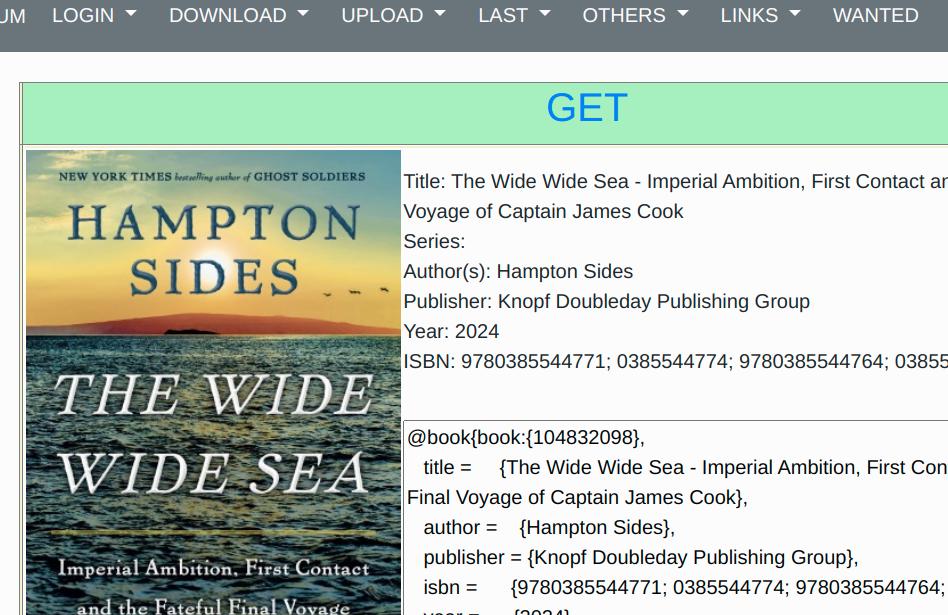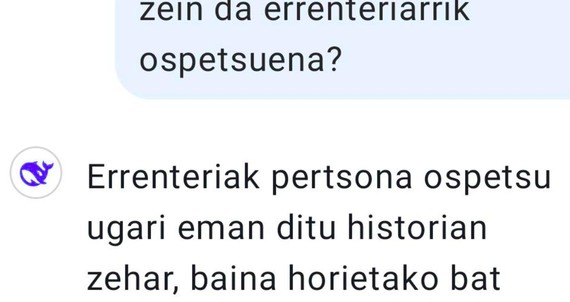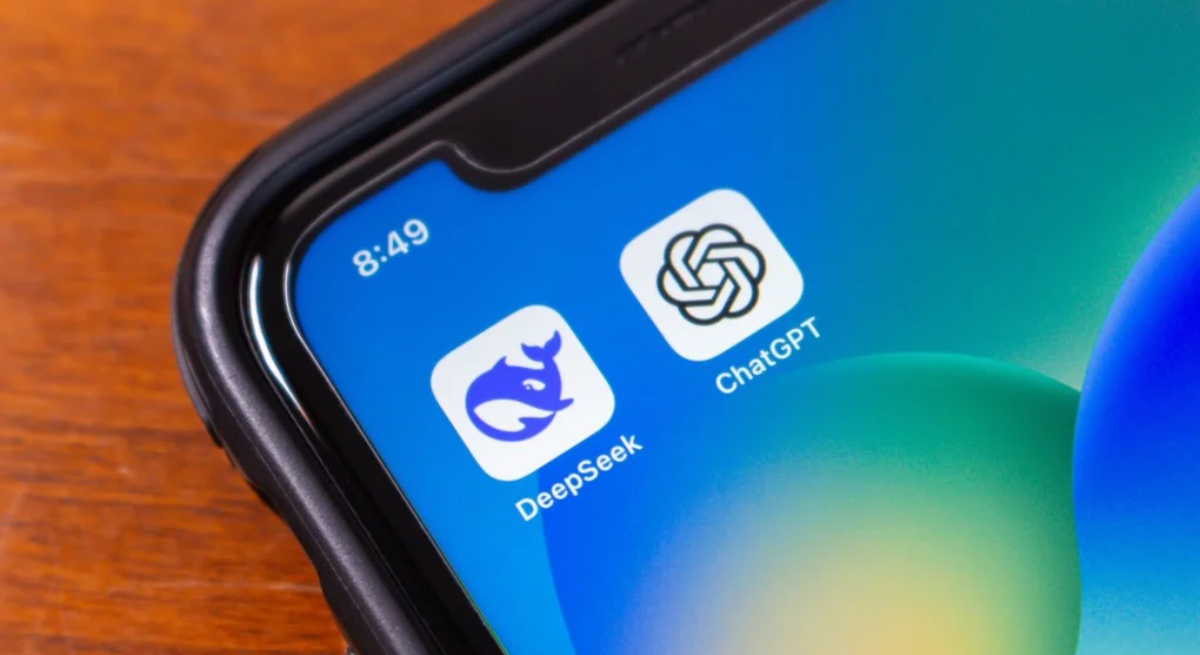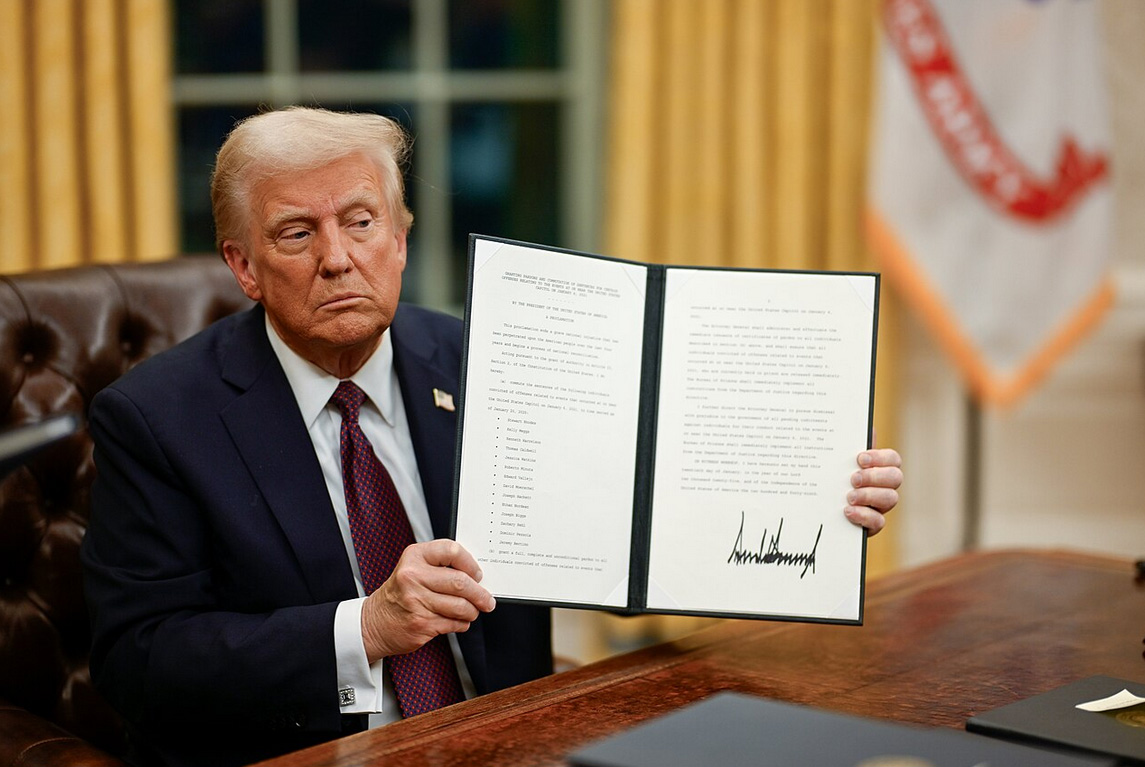Time to build alternatives
- There are a lot of questions about artificial intelligence that's come to shake the corners. With private companies, technology is developing rapidly, with the risk of public institutions and citizens being left out, experts have warned. In 2023, we are apparently going to see spectacular progress, but we do not seem to be fully aware of the blow of the “revolution” they have announced to the four winds. Will we be able to get out of the shadow of giants and develop alternatives?
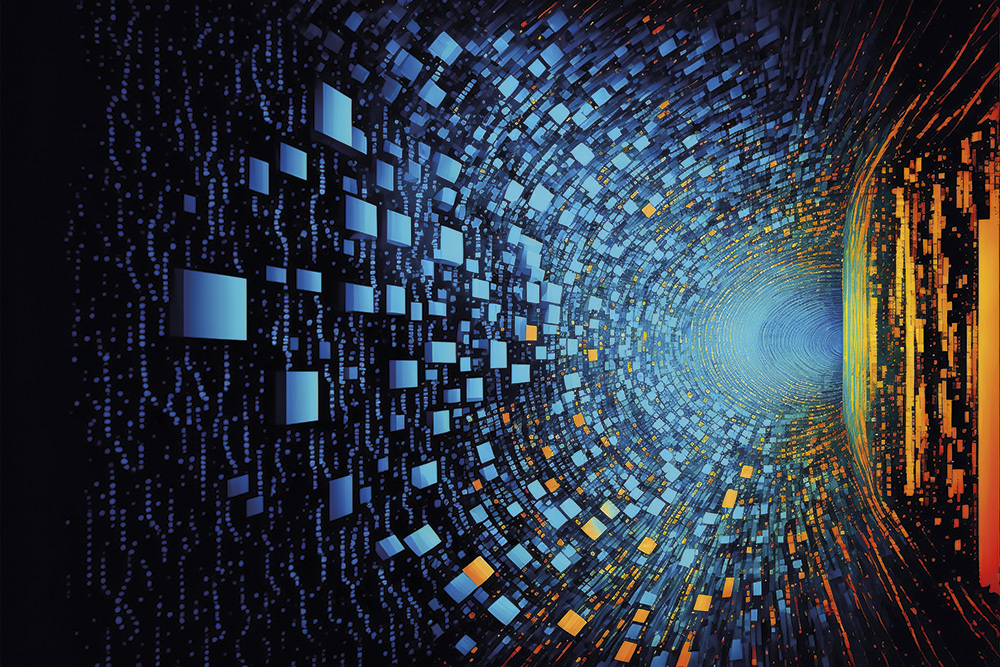
Every day dozens of AI news items are published in the media, reflecting the curiosity, emotion, concern, fear or any feeling that arouses the subject. The programs that create spectacular illustrations on a mother, the ChatGPT system that gives ever more accurate answers, the activity of the company that has developed it, OpenAI, whose founder is the entrepreneur Elon Ms, and one of the main investors Microsoft, an “open war” between Microsoft itself and Google, the intervention of public institutions in that “private” war, is a matter of morbulous data.
The outstanding questions are scientific, because no one is sure how far the ongoing “revolution” will lead us. The day will come to ask a machine: “Write a report of 15,000 characters of artificial intelligence, focusing its private vs public management, intercaling the opinions of this expert and his opinions and with a didactic touch but of light writing”. In the meantime, we will try to organise an information bath. In the shadow, Iñaki Alegria, member of the research team Ixa of the UPV/EHU, and software developer Gorka Julio, have given us interesting brushes on the subject to fine-tune the interviews made to Microsoft informatics, Ane Iturzaeta, and to the professor of the UPV, Xabier Barandiaran.
Basically, artificial intelligence would be feeding computers of enormous computational capacity with millions of data, processing them using algorithms and identifying patterns to draw conclusions or “make decisions” or “execute” them in the digital world or, through a robotic body, in the physical. It scares us especially as citizens, as they are URL-shaped robots that in our imagination make artificial intelligence, although it is also integrated into the mobile, in photo editing applications and others.
If an artificial intelligence can not only make a miraculous summary of a book, but can accurately answer all questions about it or develop an original track of the work, what will happen to copyright?
Machines learn fast, faster than man. But they need their help to train them to get the most reliable result possible. For example, neural translators in Euskera (based on the discipline of machine learning in the field of artificial intelligence, such as Ir and Elia), would at first make mistakes with the corrections made by people, not forgetting that the computational capacity and the corpus are becoming broader.
We have mentioned the corpus, the linguistic database. The English, the Castilian and the French are great compared to the Basque ones, but we can constantly enrich them, not only in the ChatGPT developed by the company OpenAI, but also in the free initiatives that are or want to be alternatives to them. One of them is the OpenAssistant project, free and developed as open source software, as we read in Sustatu.eus (OpenAssistant smart chat in Basque, 23-02-20). Professor Beñat Erezuma and advisor on Science and Technology tells us that we should collaborate on this project: "The Basque language is currently the 10th most trained language, but it is far from the former. To improve the quality of this chats based assistant, it is essential that the human being works with him to improve the model". More information about the initiative can be found in the @aaeuskaraz account on Twitter, created by users who train in the Basque Open Assistant.
Open and enriched with the knowledge of all
The encyclopedia Wikipedia has set as an example the UPV Professor of Philosophy Xabier Barandiaran, a researcher in cognitive neuroscience and an expert in artificial intelligence, when we asked him if it is possible to create alternatives to giants like Microsoft or Google, taking into account that data collection is very expensive, both in money and in energy: “It has shown that you can overcome technical barriers, for example, the ability to create collective intelligence. Barandiaran told us that similar movements can be considered to some extent as techno-political movements and that they are lacking especially in the public sphere: “It is surprising that the institutions do not support such initiatives. Private companies in the area receive support, but are geared towards meeting their needs, not so much for the benefit of society. Now is the time to bet on a common public artificial intelligence. Begira Wikipedia, the infrastructure developed openly in collaboration, has fed the knowledge of all users, it is free, it is out of the hands of private companies… If alternatives like Wikipedia do not arise, we will be in the grip of big companies forever.”
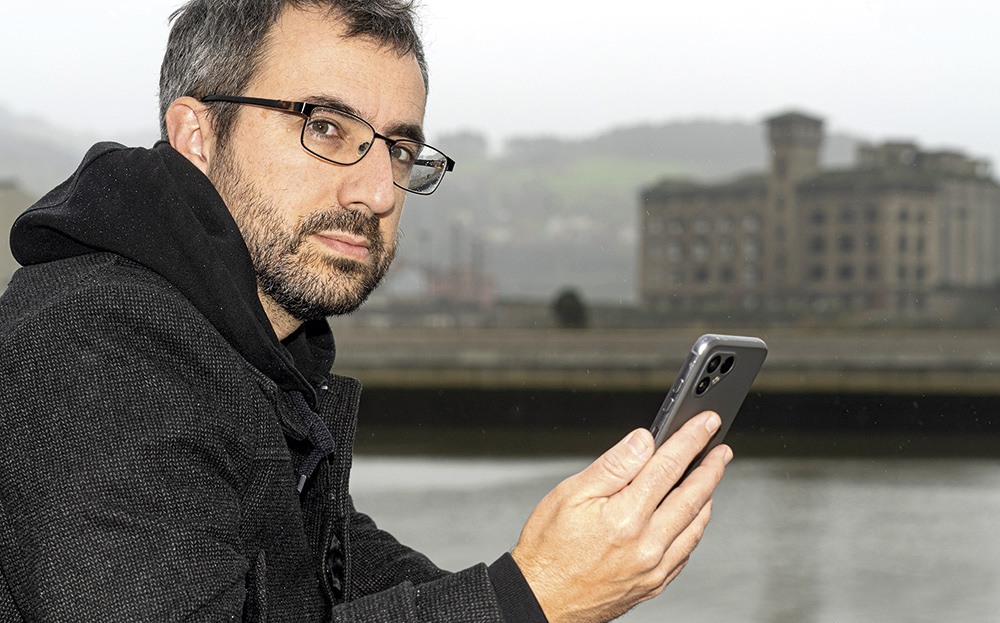
Wikipedia owes its existence to the legal definitions and licenses of free software. The published is free, available and can be disseminated by anyone, maintaining the same license. Infrastructure and content were built out of the form of intellectual property and has been an incentive for many other initiatives. “According to the standards they set, we may not have the possibility of making a common and open artificial intelligence like Wikipedia,” says Barandiaran. “Infrastructure, request for authorisation, collection and quality of corpus, legal and technical capacity for its use … to whom are we delegating all this?” Considering the need for large resources, the professor at the UPV/EHU is particularly concerned about the management of a few multinationals, as it would involve the privatization of global knowledge: “It should be public, because it is common at source”. Who is the content generated by the artificial intelligences that feed on free data (Wikipedia)? If an AI can not only make a miraculous summary of a book, but answer precisely all the questions about it or develop an original track of the work, what will happen to copyright? Questions about questions.
There are more questions, such as those related to artificial intelligence training. Several experts warn of the risk of homogenization, in short, that if the training of machines, to give “adequate” answers, is left to a few companies because their thinking can be imposed, their “truth”, which, however, rather than a “new” problem, means “deepening” the problem. For example, if people or entities developing and/or using artificial intelligences, such as airport security agents or the police, are racist, how will machines act? Who will control this? In this sense, Barandiarán states that the reliability of artificial intelligence will never be 100%, but that no one is entirely reliable among human beings: “We will have to measure where it fails, if there are guarantees of justice, if it is ethical... At the same time, this process will bring forth human nature, because while “we show” to the machine we will see where it fails, in what we can improve..”
The algorithm, the secret of the big ones.
The Beasaindarra Ane Iturzaeta Agirre informatics company works as a customer engineer or cloud architect of the Data&AI group. He was awarded the Gladys Prize in 2021, organized by the Faculty of Informatics of the UPV/EHU and the PuntuEUS Foundation, which seeks to support professional women in the digital world. “I’m not going to give my algorithm to a government, it’s my secret,” he says. “I will guarantee transparency, explain how artificial intelligence has reached specific levels of accuracy or what factors have influenced the outcome, but I will not give my formula, IP or intellectual property. But you can discuss everything, I also have contradictions, everything goes so fast...”.
“Public institutions know what is coming, but they often look elsewhere, perhaps because of the work that their regulation might entail.” Ane Iturzaeta
Microsoft has invested millions of dollars in OpenAI in order to bypass Google and other competitors: “In fact, most of the advances that Microsoft or Google have presented in the field of artificial intelligence have been made by smaller companies in the field of research, many of the universities’ turns,” explains Iturzaeta. “What have these giants done? Because the most modest companies don't have that much capacity because they're working especially in other areas of technology. It is true that both Microsoft and Google have quite a monopoly.”
The Beasaindarra computer scientist also tells us about neural translators. “No one better than going back, not even Microsoft. Since we were young, we've seen that what emerges from the community can be better. OpenAI itself was made up of four people, but then they ate large.”
Facts, best food
Artificial intelligence has made a huge leap with Big Data, according to Iturzaeta: “Data is the best food we can give it. Consider, for example, the amount of data that a person with their home connected domotically is giving each other about their tastes (music, radio programs...) and customs (when the heating ignites, when the washing machine...). We must be aware of this. In accepting the terms of the Zara website, are we aware that the data will be freely used by Inditex? Have Alexa virtual escorts read the contract? Do you know what Amazon is going to do with the information collected?”
Iturzaeta is one of the Microsoft employees who interact with OpenAI. He explains that data until 2021, “everything that was public on the Internet,” has been processed and added to this the action of more and more people who have started using it in the two years, and then pointing out what the most important revolution he believes will bring in 2023: AI. It's no longer just predictive, knowing when we're going to turn on home heating, but you can ask for concrete things, like writing a report. “It carries more responsibility,” the computer scientist says: “OpenAI has made a lot of models about millions of data. You ask and answer. What Microsoft has done is to regulate some of those absolutely free models, ‘this is what I know and I’m going to throw it out.’ In this sense, the company that hires the services of OpenAI has the possibility to regulate its use even more. For example, if management decides, when workers ask AI what's the best political party, the machine tells them you can't answer. “One of the most important concepts of AI is that almost always a person should be reviewing, validating and modifying if necessary,” says Iturzaeta: “Suppose you have to send a letter to the company’s customers by counting this and others, the machine will expedite the process but before sending it you have to validate it.”

The company that wants to access the services of the company OpenAI must clearly indicate – and it is a “quite annoying” process, in the words of Iturza- what is its use, what data it will use… “Microsoft can get there”. If someone does not comply with what has been agreed, if they are sanctioned, public institutions should: “For example, home automation data can be used to help you, detect if you’re putting yourself… That’s good, but what if someone uses your electricity bill to suit their interests? Would it be ethical? Public institutions must regulate the activity of private companies, what they can do with data and what not. They're there, but it's not easy."
Power, divided asymmetrically
In the words of UPV professor Xabier Barandiaran, there is no real transparency on the subject. “The management capacity of artificial intelligence is distributed very asymmetrically, while a few companies have enormous power, most citizens and even public administrations have no strength.” For example, most experts agree that some of the professions in which artificial intelligence is going to make major changes are in the area of justice, because machines will be able to abruptly process many huge reports (sentences, resources...) and the data derived from them, which will help predict what can happen and decide where to go in each judicial process. Who will have access to these instruments? Big law firms, like private law firms?
Asked who would set the guidelines, Barandiaran replies that he does not see any capacity or public debate: “European governments are working on the issue, but private companies are pressing a lot… We should also talk about the role of citizenship. Let us consider how many times Europe has imposed regulations on us, because most of us did not know them and we did not agree, for example in the case of foreign debt payment laws. It is true that Europe will not be the one that puts the most painful regulation, it is a pioneer in privacy, for example, but in a democracy society must take the lead.”
Ane Iturzaeta tells us that when she talks about AI in institutions and/or companies, she is always asked questions about privacy. “We are still learning. 2023 is going to be a strong year, technology has already hit us and now it’s time to set standards.” Artificial intelligence will influence all areas, and Barandián says it is everyone’s responsibility to decide what is going to evolve, so that small ones also respond to big questions.
DARKER CORNER OF THE NET
Sama, who works for OpenAI, hired Kenyan workers to test artificial intelligence. For salaries between $1 and $2 a day, workers were tagging data from tens of thousands of text fragments, Time magazine explained on January 18. Many of these texts seemed to come from the “darkest corners of the network”, as Gorka Julio wrote in the article of Mechanical Turk published in Berria: child sexual abuse, zoophilia, murder, suicide, torture, self-harm… “Works that no one wants to do will help to avoid ethical problems with these instruments.” OpenAI stated that this staff had been classifying and filtering "harmful" texts and images to eliminate the largest number of indications of violence and sex from the data. The photo below was created by Time using Dall-E 2.

PASSIVE TO ACTIVE TECHNOLOGY
Artificial intelligence will affect society as a whole, just like the Internet. But there's a big leap. To put it in some way, move from “passive” or “instrumental” technology to “active”. Xabier Barandiaran explained to us with an example: “On TV people are talking to us at all times, while we have breakfast, sending messages, but we can turn them off when we want, and also those who are talking to us do not realize what we are having breakfast. On the contrary, the technology that is being created is tractor unit, it has the capacity to do things. It is worrying because it has more competence and therefore more power to influence society.” It will have the power to change public opinion, to conduct big election campaigns with thousands of false issues, to write political speeches ...
SUBSTITUTES FOR HUMAN KNOWLEDGE
Artificial intelligence will soon be a great revolution not only in the creation of images or texts, but also in many trades, especially in those sectors where there is a lot of digitalized data: justice, informatics, teaching, journalism, medicine, automotive... and one more step in the areas of “security” or espionage that usually goes beyond. “If previously muscles were replaced by machines, they now replace human knowledge,” explains economist Paul Krugman and the Nobel Prize.
In health, for example, it can help prevent disease, analyzing a lot of data collected and discovering patterns. Microsoft informatics, Ane Iturzaeta, tells us that artificial intelligence is being used in many CAPV hospitals, “more in private centers, as they have larger means.” It was also used in the Madrid public during the pandemic to decide which patients should be admitted, since there were no beds for so many patients it was essential to make a “choice”. In education, in a framework where private software has been bitten, artificial intelligence will necessarily involve changes, such as evaluation systems. How to ensure that the student has not done so? In any case, is it reasonable to ban the use of artificial intelligence so that in future they may have a working tool? Is it best to ban it or incorporate it into the learning process? For example, students can be asked to exercise against ChatGPT and correct their mistakes. Artificial intelligence can also be leveraged for personalized monitoring of children.
Will jobs disappear? Surely yes, but, as Gorka Julio told us, we must not forget that human beings are more efficient and cheaper machines than we can build in the future, “with a sandwich we have enough for all the work to last”. A series of tasks, socially less prestigious (care, cleaning, distribution...), will be performed by a man cheaper and more effective than a robot.
Silicon Valley-ko oligarkia AEBetako gobernura iritsi berritan lehertu da adimen artifizialaren (AA) burbuila. Txip aurreratuen erraldoia den Nvidia-k urtarrilaren amaieran izandako %16,8ko balio galera, egun bakar batean inoiz izan den burtsa balio galerarik handiena da... [+]
Geroz eta ekoizpen gehiagok baliatzen dituzte teknologia berriak, izan plano orokor eta jendetsuak figurante bidez egitea aurrezteko, izan efektu bereziak are azkarrago egiteko. Azken urtean, dena den, Euskal Herriko zine-aretoak gehien bete dituztenetako bi pelikulek adimen... [+]
Diario de Noticias de Álava (DNA) egunkariko langileak sinadura greban daude, eta aspaldi ari dira beren lan baldintza “miserableak” eta horiek kazetaritzaren kalitatean duen eragina salatzen. 2013tik soldatak izoztuta dituzte, eta ordutik erosahalmenaren %30... [+]
“I will overturn, overturn, overturn, it[...]”
Ezekiel 21:27 – King James Version
“Above all algorithms, below all algorithms”
Xabier Landabidea
I’m uncomfortable, uncomfortable with the almost religious attitude our society has taken towards technology, and... [+]
Zer jakin behar dut? Norekin erlazionatu behar dut? Non bizi behar dut? Ardura horiekin gabiltza gizakiok gure gizarteen baitan bizitza on baten ideia bizitzeko bidean. Ondo erantzuten ez badakigu, bazterretan geratuko garen beldurrez.
Joan den astean, kanpoan geratzearen... [+]
Many years ago, Dr. I knew the abuse chatbot, and I also realized the speed at which people can engage with these machines. Being social animals, the relationship is natural and necessary, and as the name 'relationship' says, it always leads to a response from the other. Receiving... [+]









